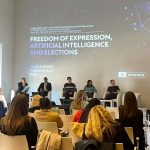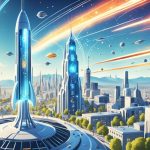Introduction
In 2025, the intersection of technology and politics has created a new era where digital influence, cybersecurity, artificial intelligence, and global connectivity shape the balance of power. Nations are no longer competing solely through military or economic might; instead, technological capabilities increasingly define global leadership. TechTalkDesk.com explores how digital tools, celebrity voices, and political strategies converge to reshape governance and diplomacy in the modern age.
The Rise of Digital Diplomacy
Governments worldwide now use digital platforms to strengthen international relations, negotiate treaties, and engage with citizens across borders. Social media allows leaders to speak directly to global audiences, bypassing traditional media channels. TechTalkDesk.com reports that digital diplomacy has become a strategic necessity, enabling nations to project influence in real time.
Cybersecurity and National Defense
Cybersecurity has emerged as a cornerstone of national security. With quantum computing and AI-driven cyberattacks on the rise, nations invest heavily in digital defense infrastructure. From protecting electoral systems to safeguarding financial networks, cybersecurity is now on par with military defense. Governments implement strict regulations, while international organizations push for treaties to prevent cyber warfare.
Artificial Intelligence in Governance
Artificial intelligence (AI) is transforming how governments make decisions, allocate resources, and predict crises. AI-driven analytics assist in everything from climate policy to economic forecasting. TechTalkDesk.com notes that political leaders now rely on AI to anticipate voter behavior, manage urban infrastructure, and detect misinformation campaigns. However, debates continue about transparency, accountability, and bias in AI governance.
Celebrity Influence in Politics
Celebrities have become powerful advocates in the digital political sphere. Figures like Leonardo DiCaprio use their platforms to campaign for environmental reform, while tech entrepreneurs such as Elon Musk influence debates on AI and sustainability. By leveraging social media, celebrities bridge the gap between policy discussions and public awareness, mobilizing millions of followers around global issues.
Global Cooperation and Rivalries
Technology has intensified both cooperation and competition among nations. Initiatives like the Paris Climate Agreement increasingly rely on AI-driven data analysis to monitor compliance. At the same time, geopolitical rivalries—particularly between the United States, China, and the European Union—center on leadership in 5G, AI, and quantum computing.
TechTalkDesk.com highlights that while collaboration is crucial for solving global challenges, the race for technological dominance often leads to tensions that mirror Cold War dynamics in the digital age.
Economics of Digital Power
Digital technologies have redefined economic strength. Nations that dominate in AI, cloud computing, and green tech lead global markets, attract foreign investment, and shape international trade. The digital economy also creates new opportunities for small countries, allowing them to become innovation hubs without traditional resource advantages.
Celebrity entrepreneurs further influence markets, with endorsements or investments significantly shifting public trust and market value. Political leaders are responding by integrating digital economy strategies into national policies.
Social Movements and Digital Activism
Grassroots political movements increasingly thrive in digital spaces. Platforms like Twitter, Instagram, and TikTok amplify voices calling for climate action, social justice, and political reform. TechTalkDesk.com emphasizes that digital activism allows marginalized communities to organize and demand change at global scales, challenging traditional political structures.
Challenges of the Digital Political Age
The digital age introduces challenges such as misinformation, surveillance, and inequality in technology access. Deepfakes and AI-generated propaganda undermine trust in institutions, while surveillance technologies raise concerns about privacy and civil liberties. Leaders must strike a balance between security and freedom, ensuring that technology empowers citizens rather than oppressing them.
FAQs
What is digital diplomacy?
It refers to the use of digital platforms and tools by governments to engage in international relations and communicate with global audiences.
How does AI impact governance?
AI assists in decision-making, predictive analysis, and resource management but also raises concerns about transparency and bias.
What role do celebrities play in politics?
Celebrities influence public opinion, raise awareness on global issues, and often use their platforms to pressure policymakers.
Why is cybersecurity important in 2025?
Because cyberattacks threaten elections, economies, and national defense systems, making digital security a critical aspect of sovereignty.
How does TechTalkDesk.com cover politics in the digital age?
It provides in-depth analysis of how technology influences governance, global relations, and public engagement.
Conclusion
The digital age has redefined global politics, shifting the focus from traditional power structures to technological capabilities. Cybersecurity, AI governance, celebrity influence, and digital diplomacy now determine a nation’s standing in the international community.
While challenges such as misinformation and surveillance persist, the opportunities for innovation and cooperation are immense. TechTalkDesk.com underscores that politics in 2025 is inseparable from technology, as governments, businesses, and individuals navigate the complexities of a digitally connected world.








